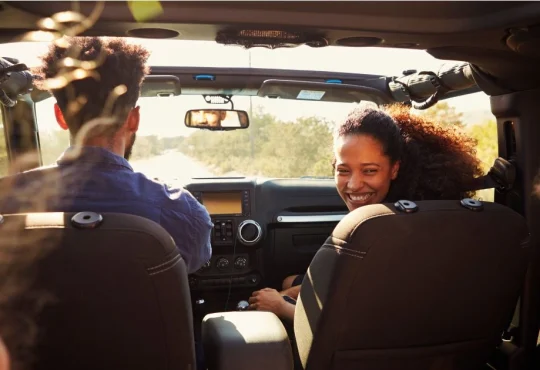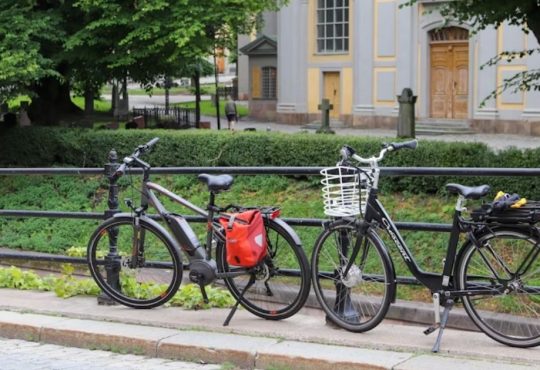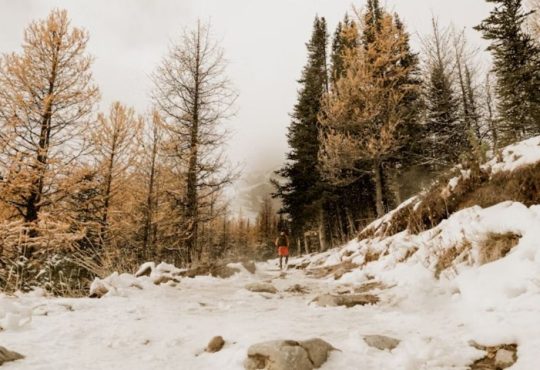For digital nomads, the world is both an office and a playground. From bustling megacities to quiet beach towns, each destination offers unique opportunities—and unique safety challenges. Being prepared doesn’t mean traveling in fear; it means traveling smart. Here’s a breakdown of safety tips tailored to popular nomad regions, plus universal habits to keep you thriving wherever you go.
Digital Nomad Safety Tips Around the World
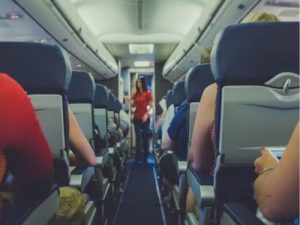
Southeast Asia
Bali, Chiang Mai, and Ho Chi Minh City are among the top digital nomad hotspots, loved for their affordability, warm climates, and thriving communities of creatives and entrepreneurs. But while these destinations are inviting, safety on the streets is something to take seriously. Motorbike snatch theft is common in busy areas, so always keep your bag strapped across your body and zipped securely. In Bali, steer clear of unlicensed taxis, which often overcharge or lack safety standards—opt instead for Bluebird cabs or trusted apps like Grab and Gojek. These small precautions make a big difference in day-to-day comfort and security.
Vietnam, on the other hand, offers its own unique challenge: crossing the street. With a sea of scooters and cars rarely stopping, it can feel intimidating, but the rule is simple—walk slowly and steadily, and drivers will weave around you. Running or hesitating can cause confusion and close calls. Additionally, digital nomads should always be prepared for intermittent internet connections. While many cafés and coworking spaces in Southeast Asia are reliable, power cuts and overloaded networks are not uncommon. Carrying a portable hotspot or local SIM card ensures you stay connected whether you’re hopping between cafés in Chiang Mai or exploring Bali’s beachside towns.
Europe
Lisbon, Berlin, and Budapest have become magnets for digital nomads, offering vibrant coworking hubs, fast internet, and a buzzing city life. But Europe’s charm comes with a fair share of street smarts. Pickpockets are exceptionally skilled in tourist-heavy destinations, such as Barcelona, Paris, and Rome, often targeting crowded squares and public transportation. To minimize risk, keep your wallet in a front pocket, invest in an anti-theft backpack with hidden zippers, and stay alert in busy areas. Public transport is generally safe, but if you’re traveling late at night, avoid empty train cars and stick to well-lit stations.
Beyond day-to-day safety, Europe also comes with practical considerations. Some countries, such as Germany, have strict rules around ID checks, so it’s best to carry a photocopy of your passport while keeping the original securely stored. And while many parts of Southern and Eastern Europe are budget-friendly, Scandinavia is famously expensive. For nomads working with variable income streams, financial safety means budgeting carefully to avoid overspending in high-cost cities like Copenhagen or Oslo. Blending in like a local—both in how you carry yourself and how you manage your money—can go a long way in making Europe a smooth and safe base.
Latin America
From Mexico City to Medellín, Latin America has emerged as a burgeoning hub for nomads. Street smarts go a long way here: don’t display flashy jewelry or laptops in public, use Uber or Didi instead of flagging taxis, and avoid wandering alone at night in unfamiliar neighborhoods. In Colombia, coworking spaces like Selina or WeWork not only provide faster internet but also safer working environments. In Mexico, learn a few Spanish phrases—blending in helps reduce unwanted attention.
Middle East & Africa
Dubai is often ranked as one of the safest cities in the world, making it a comfortable choice for digital nomads. Still, cultural awareness is essential—modest dress is expected in certain areas, and public displays of affection should be avoided to respect local norms. Daily life runs smoothly thanks to world-class infrastructure, but nomads should remember that certain behaviors taken for granted elsewhere, like drinking outside designated venues, can lead to legal trouble. In Morocco’s Marrakech, the colorful souks are unforgettable but come with persistent touts. The best approach is to stay polite but firm when declining offers, and keep an eye on your belongings in crowded market streets.
Further south, Cape Town is a hub for nomads drawn to its coworking spaces, coastal views, and creative scene. However, the city also has higher crime rates compared to other global hotspots, so it’s wise to stay within safe neighborhoods and avoid walking alone at night. Across much of Africa, internet access can be patchy or expensive, so preparing with offline maps, backup data plans, and a reliable VPN ensures both safety and productivity. Respecting local customs while planning for practical challenges makes nomad life in the Middle East and Africa both rewarding and secure.
North America
Digital nomads in North America often gravitate toward hotspots like Austin, New York, and Vancouver, where strong infrastructure and diverse communities make working remotely a convenient option. That said, urban awareness remains essential. In New York, laptops and phones can be easy targets in busy cafés, so never leave your gear unattended, even for a quick bathroom break. San Francisco, meanwhile, is known for frequent car break-ins—avoid leaving anything visible inside vehicles, even something as small as a shopping bag. Sticking to safe neighborhoods, using ride-sharing apps with caution after dark, and remaining alert in crowded areas can help make city life smoother.
The U.S. also brings a unique challenge: healthcare. Unlike many parts of the world, medical treatment here is exceptionally costly, so health insurance is essential—even a simple emergency could drain your budget without it. Canada generally offers a safer environment with lower crime rates, making cities like Vancouver and Toronto attractive bases for international students. However, winters in places like Montreal can be brutally cold, and preparing with proper clothing, gear, and heating arrangements is more than comfort—it’s a safety necessity. In both countries, striking a balance between city smarts and practical planning ensures that nomads can thrive without unnecessary risks.
Oceania
Australia and New Zealand are among the most nomad-friendly destinations, offering reliable internet, modern infrastructure, and welcoming communities. Crime rates are relatively low, which makes day-to-day living feel safe. However, nature is where caution is essential. In Australia, the beaches are beautiful but can be dangerous due to strong riptides—always swim between the red and yellow flags where lifeguards are present. Wildlife safety is also essential, as encounters with jellyfish, snakes, or spiders are possible, especially in rural or wilderness areas. Staying aware of local advisories helps prevent accidents while enjoying the outdoors.
In New Zealand, the landscapes are breathtaking, but remote hikes can quickly turn risky if you’re not prepared. Weather conditions can change rapidly in mountainous regions, so carrying proper gear, extra food, and warm clothing is crucial, even for shorter treks. Always let someone know your planned route and expected return time. Both Australia and New Zealand also enforce strict biosecurity laws to protect their unique ecosystems; therefore, travelers should carefully check what they pack before entering, as items such as fresh food, plants, or soil can lead to hefty fines. For digital nomads, respecting nature’s power and the countries’ environmental rules is just as crucial as securing good Wi-Fi.
Digital Nomad Safety Habits (Everywhere You Go)
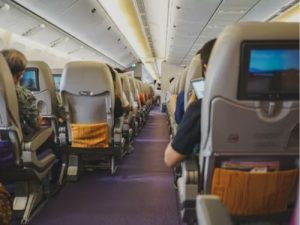
Protect Your Tech
Your devices are your lifeline as a digital nomad, and losing them—or worse, getting hacked—can derail both your income and your travel plans. Always use a reliable password manager to keep your accounts secure, and never recycle weak passwords across platforms. A VPN is essential when connecting to public Wi-Fi in cafés, airports, or hostels, as it keeps your browsing private and protects sensitive data, such as banking details. Regularly back up important files to cloud storage so that if your laptop is lost or stolen, your work doesn’t vanish with it. Think of your gear as your portable office—guard it like you would a brick-and-mortar business.
Financial Safety
Access to money is just as important as access to Wi-Fi. If your primary card gets stolen or frozen, having a backup is non-negotiable. Services like Wise or Payoneer are excellent for handling international transfers with lower fees, while PayPal gives you global coverage. A local bank card can also help avoid steep ATM fees and ensure you have access to local services. Spread out your funds across multiple accounts and keep some emergency cash tucked away—because nothing’s scarier than being in a foreign country with zero access to money.
Know Local Laws
What’s legal at home might land you in hot water abroad. Something as simple as chewing gum in Singapore, vaping in Thailand, or flying drones in Morocco can result in hefty fines or even jail time. Beyond laws, some countries have strict cultural norms, such as conservative dress codes or restrictions on photographing certain places. Always take a few minutes to research the dos and don’ts before arriving. Staying informed keeps you respectful, safe, and off the radar of unnecessary trouble.
Emergency Contacts
In a new country, knowing who to call in an emergency is just as vital as knowing where the best café is. Not every country uses 911; Japan, for instance, has 110 for police and 119 for fire and ambulance services, while Europe generally uses 112. Save these numbers in your phone as soon as you land. It’s also wise to note the contact details of your embassy or consulate, as they can assist with everything from lost passports to legal issues. If you’re staying long-term, having a trusted local contact—whether it’s a coworking space manager, a landlord, or a new friend—can make all the difference in urgent situations.
Health First
Health often gets overlooked when chasing deadlines and sunsets, but it’s the foundation of safe travel. Before you leave, make sure your vaccinations are up to date and check if any destinations require additional shots (like yellow fever or typhoid). Carry a small first-aid kit with essentials such as pain relievers, bandages, and rehydration salts for common travel-related ailments. It’s also smart to research nearby hospitals or clinics in advance, so you’re not Googling in panic when something happens. And don’t forget travel health insurance—because a sprained ankle abroad can cost as much as a MacBook without it.
Safety Tips for Digital Nomads
Being a digital nomad isn’t just about finding the perfect Wi-Fi signal or the trendiest coworking café—it’s about building a lifestyle that balances adventure with security. By adjusting your habits based on where you are—whether it’s watching for pickpockets in Europe, avoiding late-night streets in Latin America, or respecting cultural norms in the Middle East—you set yourself up for smoother travels. After all, safety isn’t about limiting experiences; it’s about unlocking more of them with confidence.


